Taliban forces ordered to track down Aussie allies on ‘hit list’
Former Australian Embassy guards still in Afghanistan have been abducted and beaten, banned from working, and left fearing for the lives of themselves and their families.
News
Don't miss out on the headlines from News. Followed categories will be added to My News.
Afghan generals and other loyal Australian allies are being hunted down after appearing on a Taliban hit list, which a leading human rights advocate says proves Australia must intervene.
The list — obtained by The Sunday Telegraph — is just one of many believed to be circulating in Afghanistan. It calls for the immediate arrest of generals, previous government officials and head of a prison.
It refers to men believed to be hiding in Kabul by their name and rank in the previous government and army.
“The Mujahideen of the security areas and commanders of all districts and provinces are directed to arrest the people who are on the list … corrupt military personnel of the previous government,” it reads.
The Taliban had previously agreed to an amnesty for anyone who worked for the previous government, which was clearly a lie, human rights advocate Dr Kay Danes OAM said.
“That list is one of several lists we believe to be in existence … our network believes this is part of a much broader strategy,” she said.
“Other lists are being disseminated across Afghanistan and that is a clear indication that the Taliban, contrary to the amnesty that they promised … this list shows that was a fake promise.”
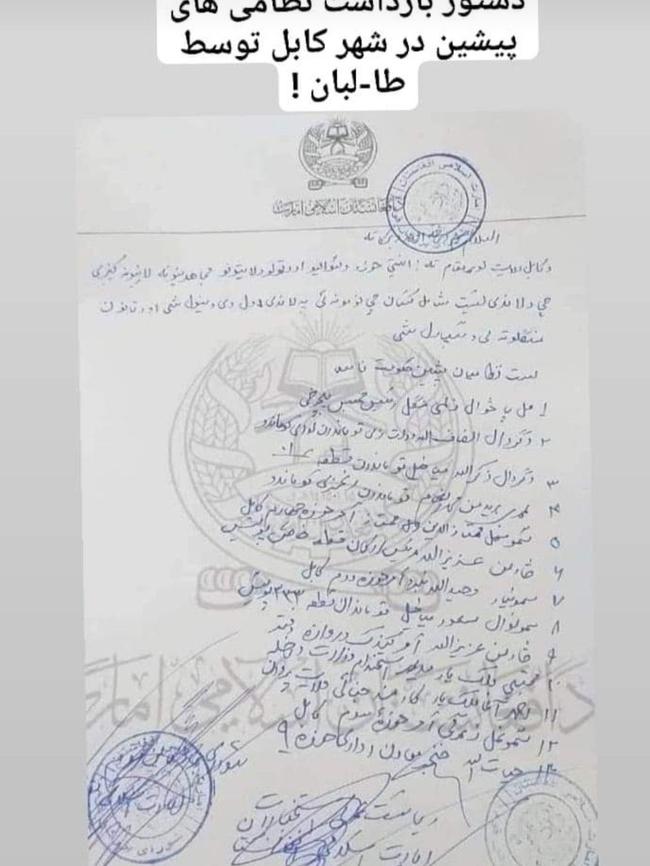
Dr Danes has been working with GAP Veteran & Legal Services on behalf of Afghans with a strong connection to Australia who were left behind after the fall of Kabul, without the protection of an Australian visa.
She says these Afghans should be top priority for the Australian government but instead have been left to suffer the wrath of the Taliban.
“Among some of those Afghans I’m in contact with, I get images and videos from their children begging: ‘Dr Danes please don’tlet them kill my father’ … it’s heartbreaking.
“I want to rescue them and their mothers and their sisters but I can’t, I feel so helpless. It’s complete desperation.
“We aren’t asking for anything unreasonable, we are just asking the government to do what it promised … we’ve proved these cohorts have very strong connections.
“These hit list letters have taken the anxiety up a whole new level and its absolutely terrifying.”
Dr Danes has been working to get translators, embassy guards and other “mission essential personnel” who worked with Australia out of the Taliban-controlled country after the Albanese government confirmed those in the country will not be processed for visas.
The reasoning is that biometric data cannot be taken while Australia has no official presence in Afghanistan, however Dr Danes is concerned that if she moves these families to a third country for processing, they risk coming to the Taliban’s attention.
A spokesman for the Department of Home Affairs said: “Humanitarian and family visa processing for Afghan nationals continues to be a priority” but added that waiting times may “vary”, depending on the circumstances of the applicant.
“We know this is a distressing time for many people, including our Australian Afghan community,” he said.
AUSSIE EMBASSY GUARDS ABANDONED, THEN BEATEN
They are abducted and beaten, banned from working, always looking over their shoulders, always fearing for their lives and the lives of their families — and never knowing when the Taliban will try to kill them.
This is life for those Australian Embassy guards still in Afghanistan after being abandoned by the Australian government.
While some of their colleagues were lucky to be evacuated during the early days of the fall of Kabul, others remain trapped and say they have been left to die.
Speaking on the condition of anonymity for fear of retaliation, embassy guard Abdulla said he was almost killed because of his time working for Australia.
“I was badly beaten when they (Taliban) kidnapped me for working at the Australian Embassy. My life now is a daily struggle to survive and I despair knowing that my co-workers received their Australian 449 visas and have been accepted by the Australian government,” he said
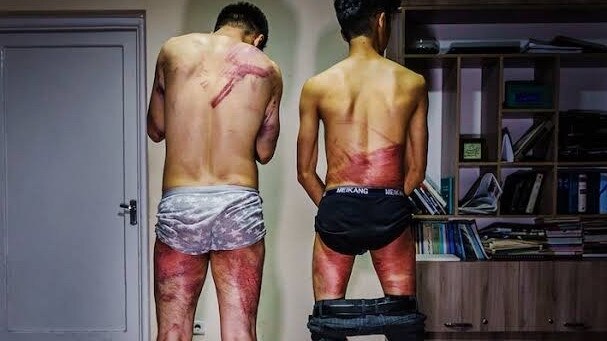
Abdulla said working for Australia was an “honour” but it had now placed a target on his back.
“Every day our lives are deteriorating. We ask Australia to give us a chance for the sake of humanity,” he said.
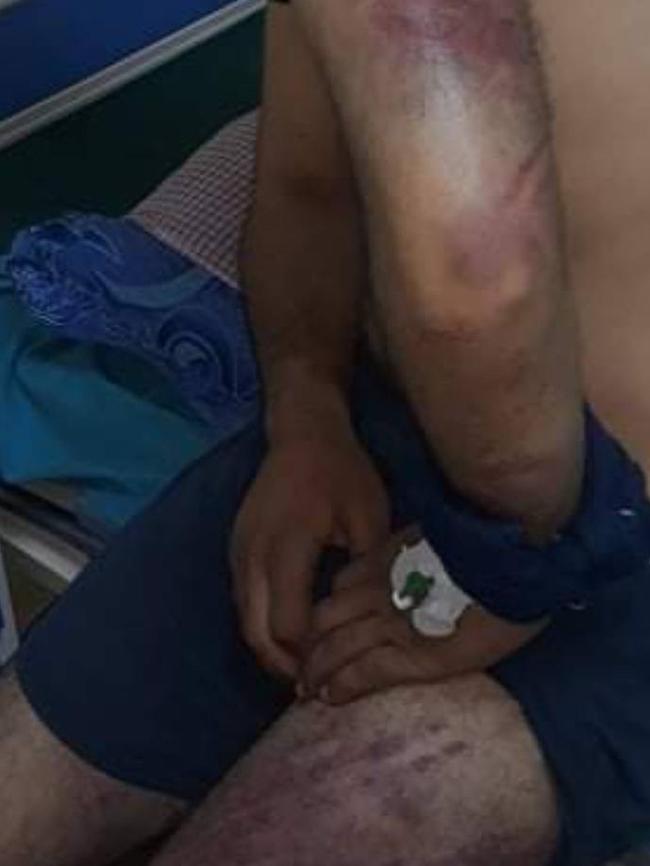
Like other Afghans with connection to Australia, Abdulla and his fellow guards who were left behind have just one option — risk travelling to a third country.
Once there, Australia says their visas can be processed, but they risk being deported back into the hands of the Taliban.
Another guard, Samiallah, told The Sunday Telegraph he took the job protecting the embassy believing he was building a better life for his children.
“I know embassy guards who tried to get work and their records came up. They disappeared and their families were put in jail,” he said.
“Some families were released after a lot of mediation with the elders. But then, a week later, they went missing.
“Dead or alive — we don’t know. Their children were never seen again.
“I have very little hope left but I wish the Australian Prime Minister to know that when I worked for the embassy, I did it because I believed everything the Australian government said about peace and democracy.
“I want to live in a society like that, and I want my daughters to go to school and become successful.”
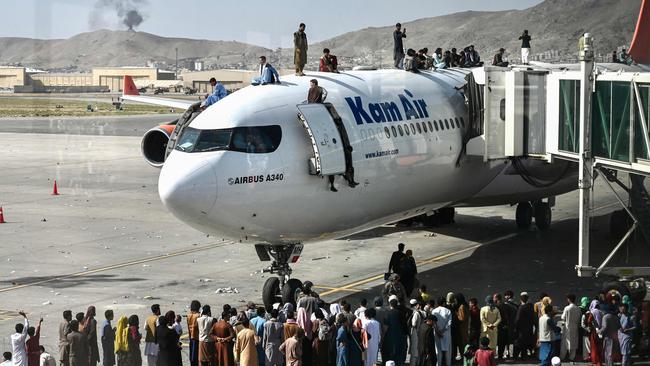
Another guard, who said he was shot while protecting the embassy, said those who talked to the media were threatened.
Dr Kay Danes OAM is a human rights advocate working to get these men and their families out of Afghanistan with GAP Legal Services.
She believes Australia has a moral responsibility to protect these families.
“I’m appalled by the treatment of these Australian Embassy guards and their families left behind when Australia withdrew from Afghanistan,” she said.
“I managed to evacuate 200 of their co-workers who were issued Australian temporary protection visas (449s), having the same employment status and service as those left behind, and who are now permanently resettled in Australia.
“Less than a dozen embassy guards remain in Afghanistan … if I relocate these people, which I can, there is still no guarantee Australia will issue them visas.
“I can’t risk exposing them under those circumstances. Pakistan won’t give them permanent residency. They’ve already assisted a million Afghans.
“These people have got nowhere else to go.
“Australia owes them some loyalty for their service.”
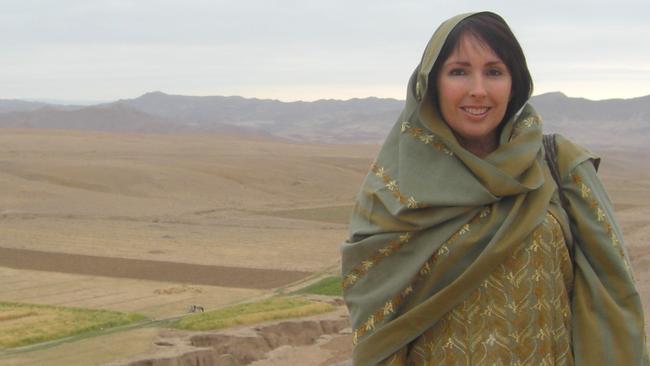
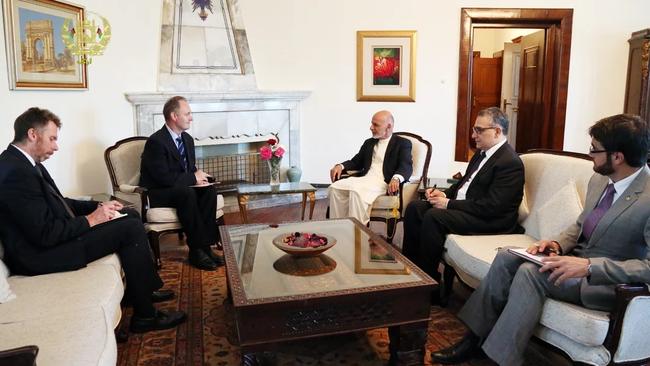
A BETRAYAL OF ALL WE STAND FOR
Pride has turned to burning shame for Nilab Nisary as she has watched how the Australian government has dealt with her cousin.
Her cousin put his life and his family’s safety on the line to protect the Australian embassy in Afghanistan.
Now she has watched him abandoned in Kabul and left to endure the constant threat of the Taliban, while she is safe in Australia.
Being Australian, the 30-year-old thought her family would be top of the list to be rescued when the Taliban seized control of the country. But he is still trapped.
“He’s unemployed, his wife has become very frustrated and has depression, things are deteriorating,” she said.

“But they haven’t given up, he still says one day there will be light at the end of the tunnel, but it’s a lot of pressure for a man who was supporting his whole family to have it all taken away.
“All I can do is raise my voice and get my message out on behalf of my family.”
Life under the Taliban’s rule is brutal for Nilab’s cousin, who is now a marked man because of his support for the West.
Unable to secure a job, the family relies on outside help, which Nilab fears will be cut off as the Taliban cracks down on women’s rights.
With two daughters now unable to receive a proper education, the family is desperate to reunite with their cousins in Australia and finally be free.
“They are extremely deprived, it’s really disheartening and it crushed my dream for my family that I left behind,” Nilab said.
“There should be a way to get them visas no matter how difficult it is … why are they left behind?”
Like so many others with connections to Australia, the family was told they must get to a third country for their visa to be processed.
However, they fear the risk of deportation back into the Taliban’s hands is too great, especially with countries such as Pakistan having strong sympathies for its neighbour’s Islamist government.
Got a news tip? Email jessica.mcsweeney@news.com.au




